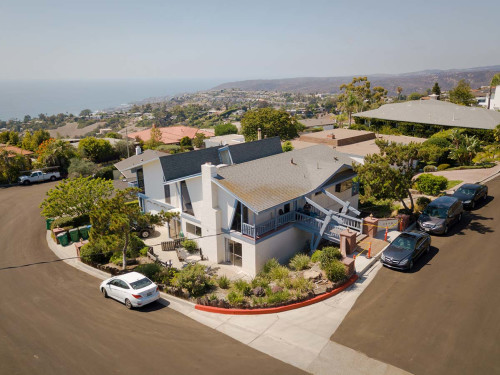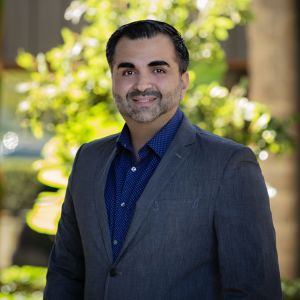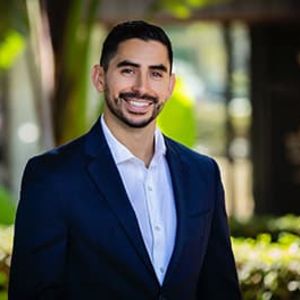






Oceanfront Recovery
Treatment Focus
This center treats substance use disorders and co-occurring mental health conditions. Your treatment plan addresses each condition at once with personalized, compassionate care for comprehensive healing.
Primary Level of Care
Offering intensive care with 24/7 monitoring, residential treatment is typically 30 days and can cover multiple levels of care. Length can range from 14 to 90 days typically.
Claimed
Recovery.com has connected directly with this treatment provider to validate the information in their profile.
Treatment Focus
This center treats substance use disorders and co-occurring mental health conditions. Your treatment plan addresses each condition at once with personalized, compassionate care for comprehensive healing.
Primary Level of Care
Offering intensive care with 24/7 monitoring, residential treatment is typically 30 days and can cover multiple levels of care. Length can range from 14 to 90 days typically.
Provider's Policy
Oceanfront Recovery is a reputable drug rehab center in Laguna Beach, Orange County. When you connect with them for your drug recovery and insurance verification, you have a partner who will guide you through each step along the way. When you call, a rehab insurance coordinator will discuss what types of insurance Oceanfront accepts. However, most insurance is accepted under this rehab program with in-network and out-of-network options. Some insurances include Aetna, Anthem, United Healthcare, MultiPlan, Cigna, and BlueCross, BlueShield. If you have out-of-network PPO benefits, a recovery specialist will determine what type of benefits you have that may help offset the cost of treatment. Whatever plan you may have, Oceanfront will be there to ensure you can receive the care you deserve. Our dedicated team works diligently in the insurance verification process. Therefore, you can rest easy with your case in their hands.
Oceanfront Recovery
Oceanfront Recovery
About Oceanfront Recovery
Oceanfront Recovery is a small, boutique provider that offers individualized, dual diagnosis treatment for men and women. Located in downtown Laguna Beach, California, only 2 blocks from the Pacific Ocean, Oceanfront Recovery provides gender-specific living residences in a vibrant community. Oceanfront Recovery has a full continuum of care including medical detox, residential treatment, intensive outpatient programs (IOP), a women's only rehab, a men's only rehab, and a specialized program for executives.
The Oceanfront programs are designed to address the individual needs of each client and to support re-integration into independent living. Oceanfront accomplishes this through individual therapy, group therapy, eye movement therapy (EMDR), art therapy, music therapy, meditation, 12-Step philosophy, yoga, and more. At the heart of the Oceanfront treatment approach is group therapy which is a highly recognized tool for growth and change. In a group, clients learn from each other, realize they’re not alone, benefit from multiple perspectives, and acquire new interpersonal skills that they can use in everyday life. Additionally, clients participate in case management, psycho-education, specialty groups, visits to the gym, and 12-Step meetings.
The Laguna Beach community is a relaxed, serene environment making it a perfect place to begin the path to recovery. The Oceanfront properties are equipped with the most modern technology and stylish furnishings. Clients have their own private workspace, and group rooms are designed to accommodate intimate group sizes. While all houses are just steps from the beach, some have a pool and a hot tub. Oceanfront is home to a vibrant community, and clients can take advantage of all the natural surroundings have to offer such as beach fitness, hiking, biking, surfing, and more.

Center Overview
Treatment Focus
This center treats substance use disorders and co-occurring mental health conditions. Your treatment plan addresses each condition at once with personalized, compassionate care for comprehensive healing.
Joint Commission Accredited
The Joint Commission accreditation is a voluntary, objective process that evaluates and accredits healthcare organizations (like treatment centers) based on performance standards designed to improve quality and safety for patients. To be accredited means the treatment center has been found to meet the Commission's standards for quality and safety in patient care.
Insurance Accepted
Cash Pay Rates
Estimated Cash Pay Rate
Center pricing can vary based on program and length of stay. Contact the center for more information. Recovery.com strives for price transparency so you can make an informed decision.
Meet Your Care Team

Dr. Ed Kaufman
Medical Director

Matthew Kinoshita
Clinical Director
LMFT

Robert Hillis
Chief Executive Officer

Keenen Diamond
COO/President

Dr. Mahallati
On-Site Physician

Dr. Mandy Neeble-Diamond
Clinical Supervisor

Ernesto Paz
Lead Therapist
LMFT

Justin Zampino
VP of Admissions

Harley Balling
Compliance
Levels of Care






Your Care Options
Specializations
Alcohol
Using alcohol as a coping mechanism, or drinking excessively throughout the week, signals an alcohol use disorder.
Who We Treat
Women only
Women attend treatment in a gender-specific facility, with treatment delivered in a safe, nourishing, and supportive environment for greater comfort.
Approaches
Evidence-Based
A combination of scientifically rooted therapies and treatments make up evidence-based care, defined by their measured and proven results.
Holistic
A non-medicinal, wellness-focused approach that aims to align the mind, body, and spirit for deep and lasting healing.
Twelve Step
Incorporating spirituality, community, and responsibility, 12-Step philosophies prioritize the guidance of a Higher Power and a continuation of 12-Step practices.
Gender-Specific
Separate treatment for men or women can create strong peer connections and remove barriers related to trauma, shame, and gender-specific nuances.
Therapies
1-on-1 Counseling
Patient and therapist meet 1-on-1 to work through difficult emotions and behavioral challenges in a personal, private setting.
Art Therapy
Visual art invites patients to examine the emotions within their work, focusing on the process of creativity and its gentle therapeutic power.
Equine Therapy
Guided interactions with trained horses, their handler, and a therapist can help patients improve their self-esteem, trust, empathy, and social skills.
Eye Movement Therapy (EMDR)
Lateral, guided eye movements help reduce the emotional reactions of retelling and reprocessing trauma, allowing intense feelings to dissipate.
Family Therapy
Family therapy addresses group dynamics within a family system, with a focus on improving communication and interrupting unhealthy relationship patterns.
Music Therapy
Singing, performing, and even listening to music can be therapeutic. Music therapy sessions are facilitated by certified counselors.
Narrative Therapy
Through narrative therapy, patients rewrite past events with a positive focus. They separate themselves from the problem to see their purpose and capabilities.
Conditions We Treat
Schizophrenia
Schizophrenia is a serious mental health condition that causes hallucinations, delusions, and disordered thinking.
Grief and Loss
Grief is a natural reaction to loss, but severe grief can interfere with your ability to function. You can get treatment for this condition.
Personality Disorders
Personality disorders destabilize the way a person thinks, feels, and behaves. If untreated, they can undermine relationships and lead to severe distress.
ADHD, ADD
ADHD is a common mental health condition caused by dopamine imbalance. Common symptoms include inattention, hyperactivitiy, and impulsivity.
Anger
Although anger itself isn't a disorder, it can get out of hand. If this feeling interferes with your relationships and daily functioning, treatment can help.
Anxiety
Anxiety is a common mental health condition that can include excessive worry, panic attacks, physical tension, and increased blood pressure.
Bipolar
This mental health condition is characterized by extreme mood swings between depression, mania, and remission.
Codependency
Codependency is a pattern of emotional dependence and controlling behavior. It's most common among people with addicted loved ones.
Depression
Symptoms of depression may include fatigue, a sense of numbness, and loss of interest in activities. This condition can range from mild to severe.
Substances We Treat
Alcohol
Using alcohol as a coping mechanism, or drinking excessively throughout the week, signals an alcohol use disorder.
Benzodiazepines
Benzodiazepines are prescribed to treat anxiety and sleep issues. They are highly habit forming, and their abuse can cause mood changes and poor judgement.
Chronic Relapse
Consistent relapse occurs repeatedly, after partial recovery from addiction. This condition requires long-term treatment.
Co-Occurring Disorders
A person with multiple mental health diagnoses, such as addiction and depression, has co-occurring disorders also called dual diagnosis.
Cocaine
Cocaine is a stimulant with euphoric effects. Agitation, muscle ticks, psychosis, and heart issues are common symptoms of cocaine abuse.
Drug Addiction
Drug addiction is the excessive and repetitive use of substances, despite harmful consequences to a person's life, health, and relationships.
Heroin
Heroin is a highly addictive and illegal opioid. It can cause insomnia, collapsed veins, heart issues, and additional mental health issues.
Methamphetamine
Methamphetamine, or meth, increases energy, agitation, and paranoia. Long-term use can result in severe physical and mental health issues.
Languages
Aftercare
Care Designed for Your Needs
Personal Amenities
Amenities
Special Considerations
Executive Program
Addiction and mental health treatment for executives typically involves high discretion, greater technology access, and more private, 1-on-1 care.
Gender-specific groups
Patients in gender-specific groups gain the opportunity to discuss challenges unique to their gender in a comfortable, safe setting conducive to healing.
Activities
Yoga
Yoga is both a physical and spiritual practice. It includes a flow of movement, breathing techniques, and meditation.





